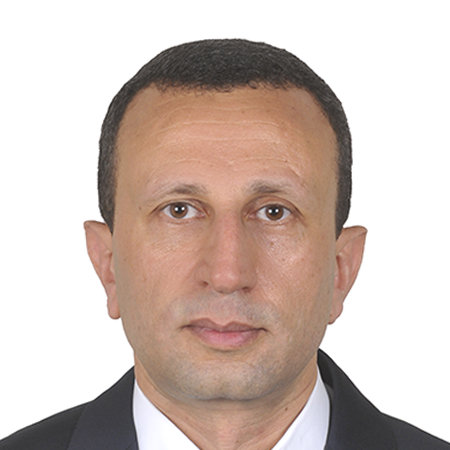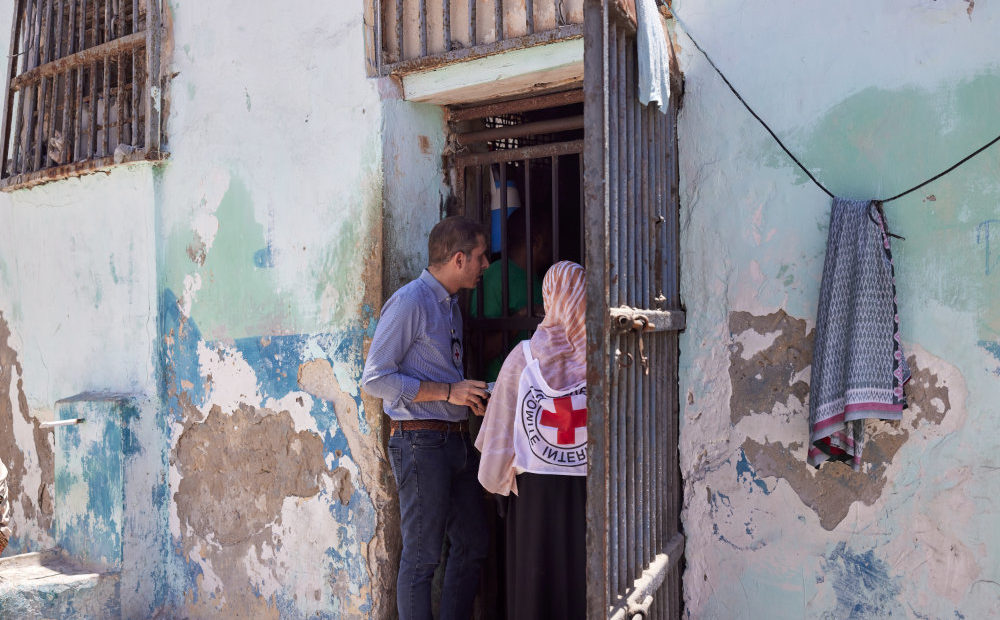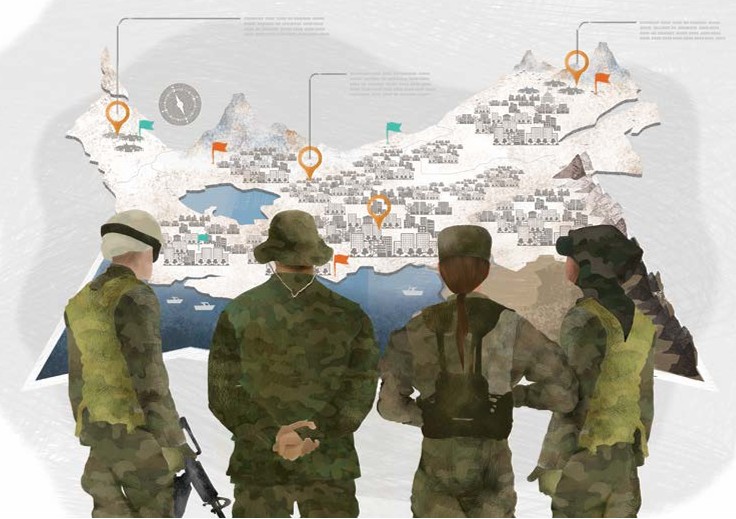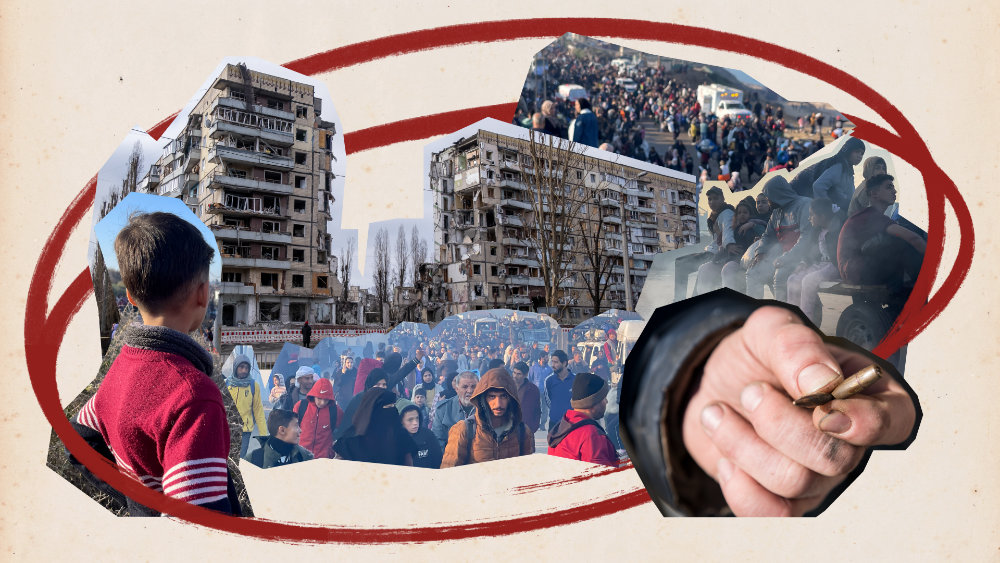Around two thirds of ICRC operations are in Muslim countries where armed conflicts are in progress. Our ability to understand the connections and differences between international humanitarian law (IHL) and Islamic law can make a crucial difference in our operational work and in our ability to build trust and respect with local communities. But how can we do this in the most effective way?
As part of commemorating the 75th anniversary of the Geneva Conventions this year, ICRC’s legal adviser for Islamic law and jurisprudence, Ahmed Al-Dawoody, looks at some of the parallels between IHL and Islamic law, and considers the critical importance of engagement between the two in today’s world.
For almost three decades now, the ICRC has been working to involve Islamic institutions and scholars, religious and community leaders in its efforts to protect and assist victims of armed conflict in these countries. Islamic law is the bedrock of Islam and one of the oldest legal systems in existence, and has developed detailed rules regulating warfare. Therefore, it is of paramount importance that the ICRC – its legal and operational expertise notwithstanding – engage with experts of various kinds in Muslim contexts and draw on their knowledge, local insights, experience and expertise in order to strengthen respect for IHL and alleviate the suffering of victims of armed conflicts in Muslim contexts.
The ICRC’s Roots of Restraint in War study shows that an exclusive focus on the law is not as effective in influencing behaviour as a combination of the law and the values underpinning it. In other words, linking the limits set out in IHL to local norms and values gives them greater traction and bears the possibility of obtaining restraint. Therefore, during our engagement with communities affected by armed conflict and situations of violence, the ICRC enters into dialogue with religions, traditions and legal frameworks in order to find common principles that help in protecting and assisting victims of armed conflict.
This is a point made by Yosra Nagui Saad, the Somalia delegation’s networking coordinator, who says: “engagement on IHL & Islamic law in Somalia has been an important avenue for familiarizing interlocutors with the ICRC mandate and IHL principles. This dialogue builds trust and reinforces common humanitarian principles.”
Integrating local norms for effective humanitarian action
IHL is the universally accepted legal regime for alleviating the suffering of victims of armed conflict. Its codification began in the late 19th century. However, major world religions, cultures, and legal traditions have attempted to restrain and humanize the use of force throughout history.
Islamic law of war includes a number of principles and prohibitions that can contribute to the efforts of alleviating the impact of contemporary armed conflict in Muslim contexts. They include, for example, the protection of civilians in a manner that is close to the protection afforded to civilians and non-combatants under IHL; humane treatment of prisoners of war during captivity; prohibition of deliberate damage to enemy property and the natural environment; prohibition of the recruitment of children; prohibition of the separation of family members in situations of armed conflict; prohibition of mutilation; prohibition of looting; and prohibition of perfidy.
Such striking similarities in the principles underpinning IHL and Islamic law of war suggest that Islamic law can help strengthen respect for IHL in relevant Muslim contexts. Finding common ground is of immediate practical importance, as well as wider understanding, a point made by colleagues in Iraq. Ahmed Mehdi, the ICRC’s political adviser in Nassiriyah, Iraq, says: “identifying the common ground between IHL and Islam’s rules of war has contributed to a better understanding of the nature of IHL and represented a key element in promoting it among different categories of people, especially the weapon bearers. Thanks to the contributions of religious figures that play a role in enhancing this approach.”
The response to the COVID-19 pandemic
The COVID-19 pandemic has shown that coordination between Islamic law experts and medical and forensic experts was essential in mitigating the impact of the COVID-19 pandemic. The ICRC has been at the forefront of helping forensics specialists and community leaders meet the challenges of ensuring the safe and dignified disposal of dead bodies.
“The ICRC regional delegation in Indonesia consulted religious leaders of the major religions in the country and conducted several webinars on the management of the dead. These consultations led to the issuance of guidelines related to the management of the dead in the context of COVID-19 pandemic according to six major religions: Islam, Christianity (Protestant and Catholic), Hinduism, Buddhism and Confucianism.”
– Novriantoni Kaharudin, ICRC Program Manager for Global Affairs, Indonesia
Practice and experience show that alleviating human suffering and addressing the serious humanitarian consequences of armed conflicts necessitates a principled, multidisciplinary and inclusive approach where both research and humanitarian actions are mutually informed. The complex and evolving nature of armed conflict requires that research be focused on field realities and humanitarian action and policy should be guided by specialized multidisciplinary research and expertise. Humanitarian actors should listen to diverse perspectives and integrate local preventive and protective norms into this dialogue so as to strengthen respect for IHL. One example is the safety and security of humanitarian actors in armed conflict, which remains a challenge in many armed conflicts.
As Antoine Grand, ICRC Head of Delegation in Bamako, Mali explains, dialogue using local preventive and protective norms is necessary to ensure security guarantees and humanitarian access, especially in territories under the control of non-state armed groups. Grand says, “enhancing respect for civilians, prisoners and the wounded is also about building bridges between the state-centric Geneva Conventions and other corpura of law. It requires a profound understanding of the context, its religion, cultures, languages and issues underlying the related conflicts. It is about educating ourselves as humanitarian organizations, and showing humility. It takes time, patience and perseverance to construct such understanding and true dialogue. It is nonetheless indispensable if we seek to influence behaviour for better respect of IHL.”
Separated and missing persons
In its efforts to enhance the legal status of the missing persons and the possible solutions to enhance support to the families of the missing, the ICRC met with the Shariah Court judges in Amman, Jordan in April 2024. The discussions focused on exchanging expertise and good practices that support the resilience of the families of the missing persons.
During the discussions, alleviating the suffering of the families of the missing persons surfaced as a shared objective with the Shariah Court judges and concrete proposals were made in this regard. Legal, policy and humanitarian dialogue should continue as long as we face humanitarian challenges in armed conflict.
“The ICRC meeting with the Shariah Court judges in Amman demonstrates a dedication from both sides to alleviating the plight of the families of the missing persons.”
– Bayan Quteshat, ICRC Legal Adviser, Amman, Jordan
Focusing on the humanitarian challenges in armed conflict and the shared values and coordinated efforts can help sustain life, safeguard human dignity and alleviate suffering. This is a principled and yet practical approach that we have to adopt to alleviate human suffering if we are to remain truly human, let alone humanitarian.
These examples demonstrate that IHL principles are reflected in other cultures and legal traditions throughout history. Ensuring respect for IHL requires a globally shared ownership of IHL, a genuine belief in its objectives, and a commitment to apply and interpret it in good faith.
See also:
- Cordula Droege, War and what we make of the law, July 18, 2024
- Olivier Ray, Principles under pressure: have humanitarian principles really stood the test of time?, July 11, 2024
- Natalie Deffenbaugh, De-dehumanization: practicing humanity, June 27, 2024
- Ioanna Voudouri, Ezat Gul, Yar Mohammad Yari, How do IHL and Islamic law protect and ensure humanitarian assistance in Afghanistan?, April 28, 2022






Comments